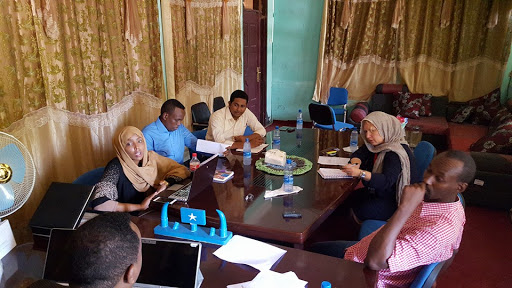Somalia is an emerging success story, but momentum needs to be sustained
The Somali foreign affairs minister, Abdusalam Omer, concurs: “Major progress has been made. Somalia is coming out of its dark past.”
The International Monetary Fund (IMF), which resumed relations with the country in April 2013, is lending credence to the new Somalia narrative. Its review of the Somali economy, the first by the IMF in over two decades, noted that between 2012 and 2014, Somalia’s real GDP grew by 3.7%.
Although Somalia cannot yet seek financial assistance from the IMF due to long-standing arrears — amounting to US$328 million in late 2015 — renewed recognition by the IMF is a critical first step and demonstrates the country is putting its administrative house in order.
Somalia’s economic growth has been fueled in part by an increase in agricultural production. According to the Food and Agriculture Organization (FAO), in 2014, Somalia exported over five million livestock to markets in the Gulf States—its highest annual number of live animal exports in the past 20 years.
These consisted of 4.6 million goats and sheep, 340,000 cattle and 77,000 camels, and the total estimated value of $360 million contributed 40% to the country’s gross domestic product.
“The country has made incredible progress,” says the IMF’s Somalia mission chief, Rogerio Zandamela, adding, “The IMF has not been alone in helping Somalia—the African Development Bank, the World Bank and bilateral donors such as the European Union, and countries like Kenya, Norway, Turkey, the United Kingdom and the United States are extremely active.”
The impact of renewed economic activity is easy to discern in Mogadishu, the country’s capital, where eye-catching office buildings and residential apartments are replacing bullet-riddled, dilapidated structures.
Once a no-go area for commercial airlines, Mogadishu is now receiving daily flights again. Restaurants, taxi companies, employment agencies, dry cleaners, gyms, real estate offices and fast food courts are springing up throughout the capital and in other cities in the country.
The economy is being accelerated by growth in livestock and fisheries and a resurgent private sector, notably in the services industry, which includes telecommunications, construction and money transfer.
“If improvement in security continues, the entrepreneurial private sector will continue to be the most dynamic contributor to economic growth.
Somalia’s resource potential makes it possible that socioeconomic conditions may show even greater improvement. According to the IMF’s country head, “The country has natural resources, including gas and petroleum, fisheries, and more. Proper management of these natural resources is vital to Somalia’s continuing success.”
Last October the World Bank announced a partnership with the Central Bank of Somalia (CBS) to facilitate the flow of remittances to Somalis, and appointed an agent to work with the CBS in providing the right regulatory and supervisory oversight for remittances.
“This is a very important initial step towards improving supervision and formalizing the money transfer business sector in Somalia,” said Bella Bird, the World Bank country director for Somalia, “We anticipate these measures will build confidence in the international community with regard to the Somali financial sector.”
Somalia is slowly becoming an attractive business destination in East Africa, due in part to the improving security situation. Since 2012 the Somali government and the African Union–run peacekeeping mission in Somalia, AMISOM, have carried out joint operations to enhance security.
Somalis are expected to go to the polls in October 2016 to elect a new government. The current president, Hassan Sheikh Mohamud, who was elected in 2012 and has been credited with overseeing a gradual return to normalcy, has indicated his intention to seek another term of office.
Although President Mohamud appears to be sending investors the right signals by indicating he will peacefully hand over power if defeated at the polls, his government has not been clear on what form the elections will take, stating that it will depend on the security situation. The president told a group of Somalis in the diaspora, “If elected I will continue. If not, I will hand over power to whoever is elected.”
In a sign of Somalia’s growing stability, Kenya, Somalia and the United Nations High Commissioner for Refugees (UNHCR) in 2013 reached an agreement for the voluntary return of refugees to Somalia. Already the refugee agency has supported the return to Somalia of more than 6,000 Kenya-based refugees between December 2014 and December 2015.
From an economic viewpoint, returning refugees are likely to put a strain on limited social infrastructure such as housing, health facilities, and water, among others. However, some economists maintain that refugees’ returning to their original homes can be a net positive for the economy.
Their return enhances social cohesion and many can go into productive activities such as farming, which could contribute to the country’s overall economic well-being.






comments (0)